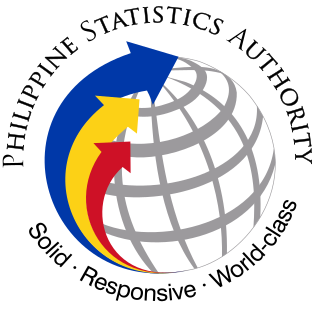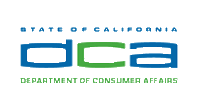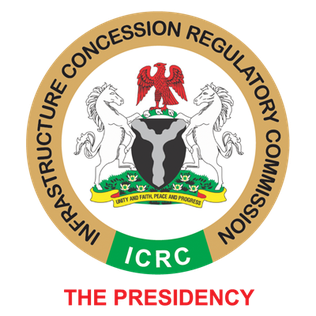Related Research Articles

A board of directors is an executive committee that jointly supervises the activities of an organization, which can be either a for-profit or a nonprofit organization such as a business, nonprofit organization, or a government agency.

The Health Insurance Portability and Accountability Act of 1996 is a United States Act of Congress enacted by the 104th United States Congress and signed into law by President Bill Clinton on August 21, 1996. It aimed to alter the transfer of healthcare information, stipulated the guidelines by which personally identifiable information maintained by the healthcare and healthcare insurance industries should be protected from fraud and theft, and addressed some limitations on healthcare insurance coverage. It generally prohibits healthcare providers and businesses called covered entities from disclosing protected information to anyone other than a patient and the patient's authorized representatives without their consent. The bill does not restrict patients from receiving information about themselves. Furthermore, it does not prohibit patients from voluntarily sharing their health information however they choose, nor does it require confidentiality where a patient discloses medical information to family members, friends or other individuals not employees of a covered entity.
Legal aid is the provision of assistance to people who are unable to afford legal representation and access to the court system. Legal aid is regarded as central in providing access to justice by ensuring equality before the law, the right to counsel and the right to a fair trial. This article describes the development of legal aid and its principles, primarily as known in Europe, the Commonwealth of Nations and in the United States.
The Electoral Commission is an independent Crown entity set up by the New Zealand Parliament. It is responsible for the administration of parliamentary elections and referendums, promoting compliance with electoral laws, servicing the work of the Representation Commission, and the provision of advice, reports and public education on electoral matters. The commission also assists electoral agencies of other countries on a reciprocal basis with their electoral events.
The Federal Acquisition Regulation (FAR) is the principal set of rules regarding Government procurement in the United States, and is codified at Chapter 1 of Title 48 of the Code of Federal Regulations, 48 CFR 1. It covers many of the contracts issued by the US military and NASA, as well as US civilian federal agencies.

The Philippine Statistics Authority is the central statistical authority of the Philippine government that collects, compiles, analyzes and publishes statistical information on economic, social, demographic, political affairs and general affairs of the people of the Philippines and enforces the civil registration functions in the country.
Project finance is the long-term financing of infrastructure and industrial projects based upon the projected cash flows of the project rather than the balance sheets of its sponsors. Usually, a project financing structure involves a number of equity investors, known as 'sponsors', and a 'syndicate' of banks or other lending institutions that provide loans to the operation. They are most commonly non-recourse loans, which are secured by the project assets and paid entirely from project cash flow, rather than from the general assets or creditworthiness of the project sponsors, a decision in part supported by financial modeling; see Project finance model. The financing is typically secured by all of the project assets, including the revenue-producing contracts. Project lenders are given a lien on all of these assets and are able to assume control of a project if the project company has difficulties complying with the loan terms.

The Department of Public Works and Highways, abbreviated as DPWH, is the executive department of the Philippine government solely vested with the Mandate to “be the State's engineering and construction arm” and, as such, it is “tasked to carry out the policy” of the State to “maintain an engineering and construction arm and continuously develop its technology, for the purposes of ensuring the safety of all infrastructure facilities and securing for all public works and highways the highest efficiency and the most appropriate quality in construction” and shall be responsible for “(t)he planning, design, construction and maintenance of infrastructure facilities, especially national highways, flood control and water resources development systems, and other public works in accordance with national development objectives,” provided that, the exercise of which “shall be decentralized to the fullest extent feasible.”

The California Department of Consumer Affairs (DCA) is a department within the California Business, Consumer Services, and Housing Agency. DCA's stated mission is to serve the interests of California's consumers by ensuring a standard of professionalism in key industries and promoting informed consumer practices. The DCA provides the public with information on safe consumer practices, in an effort to protect the public from unscrupulous or unqualified people who promote deceptive products or services.
The Corporate Enforcement Authority (CEA) is the competent authority in Ireland for the general promotion of compliance with the Companies Acts, the investigation of breaches of the Companies Acts and the taking of any necessary enforcement actions to ensure continued compliance.

The Oklahoma State Bureau of Investigation (OSBI) is an independent state law enforcement agency of the government of Oklahoma. The OSBI assists the county sheriff offices and city police departments of the state, and is the primary investigative agency of the state government. OSBI works independent of the Oklahoma Department of Public Safety to investigate criminal law violations within the state at the request of statutory authorized requesters. The OSBI was created in 1925 during the term of Governor Martin E. Trapp.

Government procurement or public procurement is the procurement of goods, services and works on behalf of a public authority, such as a government agency. Amounting to 12 percent of global GDP in 2018, government procurement accounts for a substantial part of the global economy.
The Health And Disability Commissioner is a New Zealand Crown entity responsible for promoting and protecting the rights of health and disability services consumers, and facilitating the fair, simple, speedy, and efficient resolution of complaints.
United States v. Utah Construction & Mining Company, 384 U.S. 394 (1966), is a United States Supreme Court case in which the Court held that "(w)hen an administrative agency is acting in a judicial capacity and resolves disputed issues of fact properly before it which the parties have had an adequate opportunity to litigate, the courts have not hesitated to apply res judicata to enforce repose." Utah Construction established a two-part test to determine whether res judicata effect should be given to an administrative determination. First, the agency proceeding must be examined to determine whether the agency was "acting in a judicial capacity" and whether the parties had "an adequate opportunity to litigate" the issues before the agency. Second, the general rules of res judicata must be applied to the case. Not all administrative adjudications, and not all judicial determinations, are entitled to res judicata effect. For the principles of res judicata to apply, administrative determinations, like court judgments, must be valid, final and on the merits.
Höfner and Elser v Macrotron GmbH (1991) C-41/90 was a significant EU competition law case, concerning the definition of an "undertaking" and abuse of a dominant position.
The Personal Data Privacy and Security Act of 2009, was a bill proposed in the United States Congress to increase protection of personally identifiable information by private companies and government agencies, set guidelines and restrictions on personal data sharing by data brokers, and to enhance criminal penalty for identity theft and other violations of data privacy and security. The bill was sponsored in the United States Senate by Patrick Leahy (Democrat-Vermont), where it is known as S.1490.
The Health Information Technology for Economic and Clinical Health Act, abbreviated the HITECH Act, was enacted under Title XIII of the American Recovery and Reinvestment Act of 2009. Under the HITECH Act, the United States Department of Health and Human Services resolved to spend $25.9 billion to promote and expand the adoption of health information technology. The Washington Post reported the inclusion of "as much as $36.5 billion in spending to create a nationwide network of electronic health records." At the time it was enacted, it was considered "the most important piece of health care legislation to be passed in the last 20 to 30 years" and the "foundation for health care reform."

The Intelligence Authorization Act for Fiscal Year 2014 is a U.S. public law that authorizes appropriations for fiscal year 2014 for intelligence activities of the U.S. government. The law authorizes there to be funding for intelligence agencies such as the Central Intelligence Agency or the National Security Agency, but a separate appropriations bill would also have to pass in order for those agencies to receive any money.

The Infrastructure Concession Regulatory Commission (ICRC) is an agency of the Federal Government of Nigeria responsible for the development and implementation of the Public-Private Partnership (PPP) framework for the provision of infrastructure services.
References
- ↑ Mitee, Leesi (2010). Laws of Rivers State of Nigeria: An Encyclopaedic Guide. Worldwide Business Resources. p. 205. ISBN 0-9561988-1-3 . Retrieved 13 May 2015.
- 1 2 "About RSBOPP". Rsbopp.rv.gov.ng. Retrieved 13 September 2016.